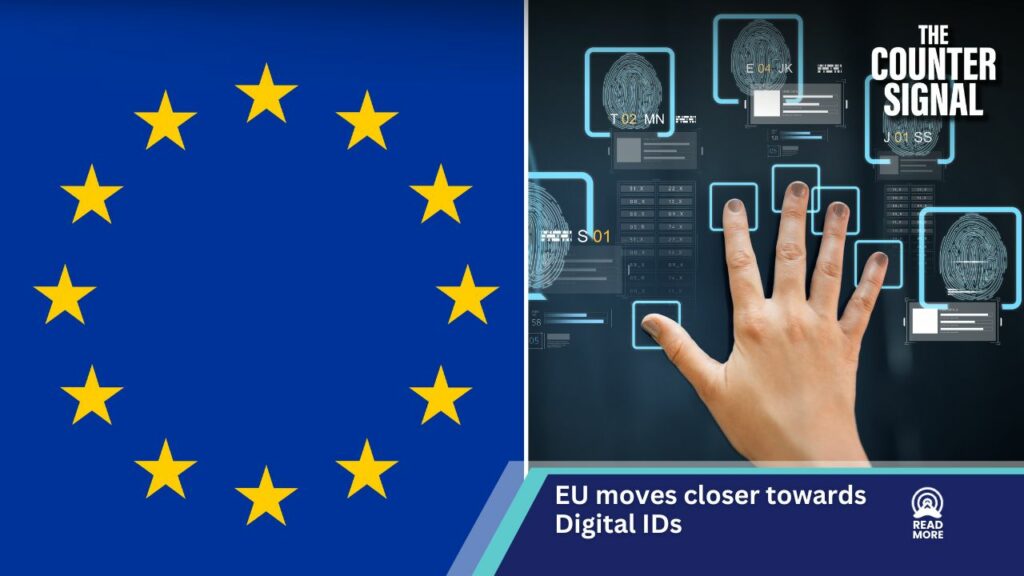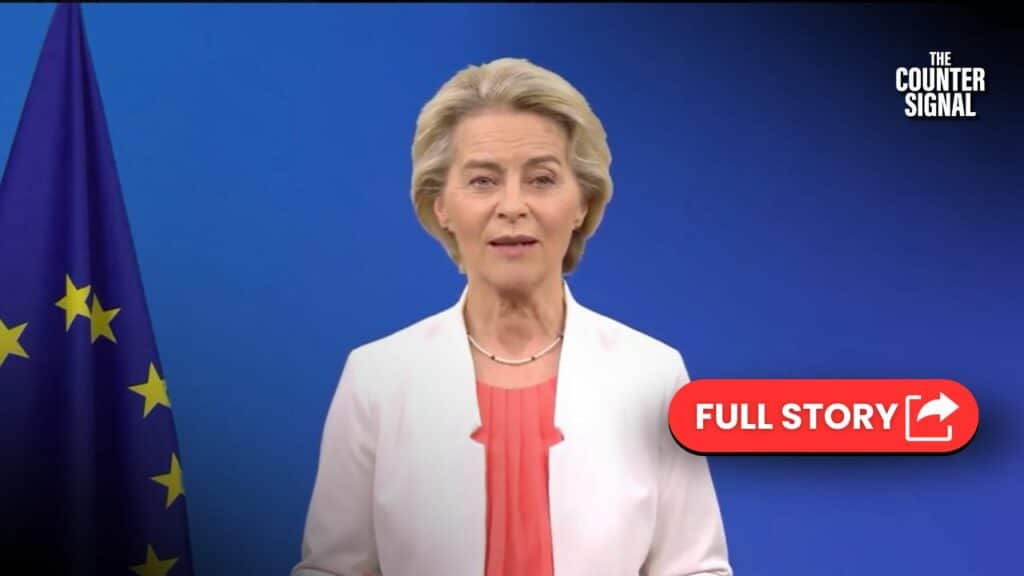The European Union (EU) inched closer to introducing digital IDs on Wednesday after the European Parliament and Council of the EU agreed on a new provisional legal framework.

The new regulations, which would introduce a Digital ID (eID) on citizens, will next be voted on for adoption by the European Union and her member states.
“Subject to a legal/linguistic review, the revised regulation will then need to be formally adopted by the Parliament and the Council before it can be published in the EU’s Official Journal and enter into force,” the Council of the EU stated.
🚨 BREAKING: Very bad news. The European Parliament and Member States just reached an agreement on introducing the Digital Identity, #eID.
— Rob Roos MEP 🇳🇱 (@Rob_Roos) November 8, 2023
Directly afterwards, #EU Commissioner Breton said: "Now that we have a Digital Identity Wallet, we have to put something in it…",… pic.twitter.com/SVC5exas9b
The eID would act as a form of identification, as well as linking government and private documentation to one’s digital identity.
Included in the regulations is the demand that all member states must provide citizens a eID Digital Wallet within 24 months of implementation of the regulations, thus enabling cross-border potential for the eID wallet.
The eID Wallet will allow users to open bank accounts, make payments and hold digital documents, such as a driver’s license, medical prescriptions, travel tickets, etc.
This is just a fraction of an effort to forward the EUs 2030 Digital Decade Targets.
Massive backlash
Some EU parliamentarians and experts have expressed concern over such a drastic move of centralizing important resources and finances into a digital format.
MEP Rob Roos from the Netherlands came out against the eID, stating that it could lead to a Central Banking Digital Currency (CBDC).
Roos noted that directly after the agreement was announced, the EU Commissioner Thierry Breton said “Now that we have a Digital Identity Wallet, we have to put something in it…”
Political commentator and pundit, Eva Vlaardingerbroek, responded vehemently to the power grab on Thursday with a lengthy post on X.
“It will entail EVERYTHING the government wants to know about you,” she predicted.
Vlaardingerbroek further predicted that the regulations will be proposed as voluntary at the start, but will lead towards mandatory adoption.
BREAKING | The European digital surveillance state is around the corner. We need to resist much and obey little. Now. 🚨👇🏻
— Eva Vlaardingerbroek (@EvaVlaar) November 8, 2023
A few hours ago, the European Parliament and the Council came to an agreement on the European Digital Identity #eID. Unless it miraculously gets voted out…
Moreover, academia from the industrial society, including cybersecurity experts, penned an open letter expressing concern over the fact that the proposed regulations would expand the ability for governments to surveil citizens across the EU through encrypted internet traffic interception.
Censorship concerns
The regulations have also been reported to expand the potential for online censorship, namely by giving the government control over websites by requiring licenses.
Civil society organizations wrote their own letters concerning the power grab, including the European Digital Rights (EDRi), the EFF, Epicenter.works, Internet Society, among others.
Companies founded on computer and internet security also conveyed their unease about the potential law, including Linux Foundation and Mozilla among others that all have written their own statement.











